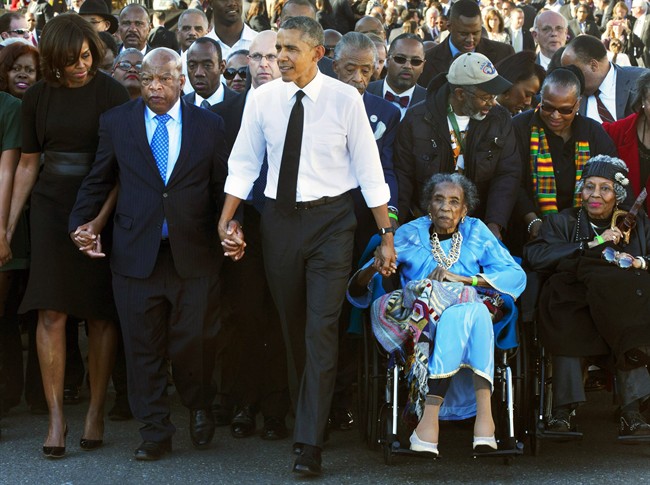BIRMINGHAM, Ala. – Civil rights activist Amelia Boynton Robinson is being remembered as a fearless leader whose tireless dedication to equal rights helped lead to the signing of the Voting Rights Act of 1965.

Boynton Robinson died in a Montgomery, Alabama, hospital early Wednesday morning, her son Bruce Boynton said. Boynton Robinson was hospitalized in July after a stroke and recently turned 104 years old.
Boynton Robinson helped lead a march across the Edmund Pettus Bridge in Selma, Alabama, in 1965 and was beaten in an attack by law enforcement that led to the march being called “Bloody Sunday.”
Fifty years after the beating, Boynton Robinson held hands with the first black president of the United States, Barack Obama, during a commemoration event as she was pushed across the bridge in a wheelchair.



Comments